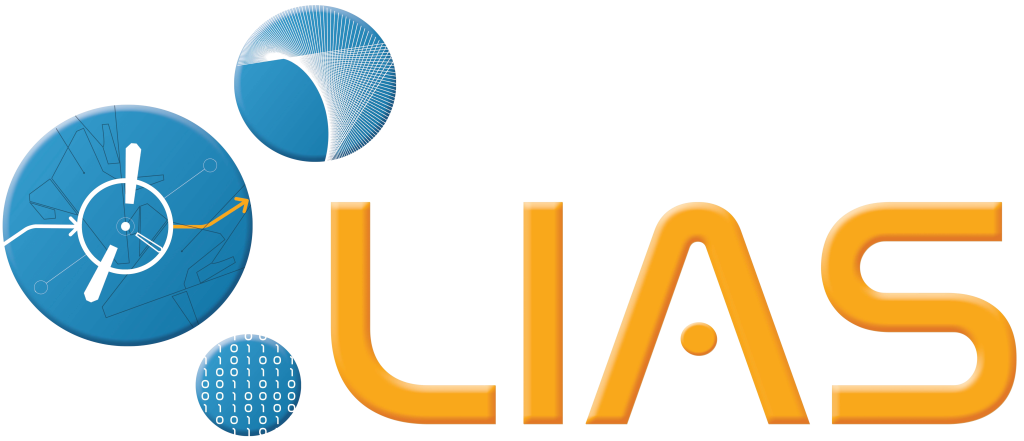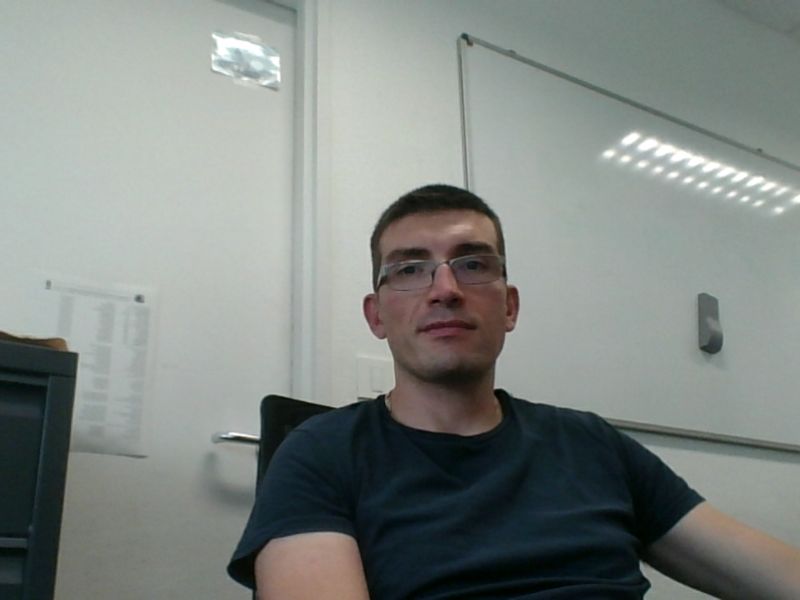
Lecture Activity
Since 2004, I have been teaching at the University of Poitiers, within the Department of Computer Science in the Faculty of Fundamental and Applied Sciences. My workload represents an average of 270 equivalent TD hours per year, mainly in the third year of the Bachelor's degree (L3) and Master's programs, in Computer Science and Bioinformatics.
My teaching focuses primarily on databases in a broad sense: conceptual modeling, SQL language, data warehouses, Big Data, semantic web, and ontologies – all of which are directly related to my research activities. I have designed and supervised many teaching units, with complete materials (lectures, tutorials, practicals, projects) based on realistic datasets, often sourced from collaborative projects with socio-economic partners. I have also managed the pedagogical administration of the Oracle servers used by several faculty members. Additionally, I have taught in other areas such as programming (Ada, C, Java), web technologies (XML, Jakarta EE, .NET), etc.
I also teach in other programs at the University of Poitiers (IUT, Master of Law) as well as at ISAE-ENSMA. I have had the opportunity to be invited to teach on databases and the semantic web at several universities internationally: in Portugal (Coimbra), China (Tianjin), Vietnam (Hanoi), and Venezuela (Caracas), within the framework of international Master's programs or academic cooperation initiatives.
Alongside my teaching activities, I have taken on several pedagogical responsibilities. From 2009 to 2013, I was in charge of communications for the Faculty of Fundamental and Applied Sciences, overseeing promotional actions for scientific programs. Between 2013 and 2018, I managed the third-year Computer Science Bachelor's program, coordinating the teaching team, managing timetables and internships, and building links with the professional world. From 2018 to 2020, I expanded my responsibilities to the entire Computer Science Bachelor's program, overseeing the curriculum, coordinating recruitment, and participating in the HCERES evaluation. Finally, since 2021, I have been the Deputy Head of the Computer Science Department. In this role, I assist Director Sylvie Alayrangues in managing all matters related to the department. This includes, among other things, the day-to-day management of the department (budget, permanent recruitment, teaching services), as well as development projects for the computer science programs (investment plan etc.).
Research Activity
Initial Research Topics: Databases and Ontologies
My research aims to improve data management, particularly in technical domains related to ENSMA's fields of expertise (aeronautics, transport, mechanics, and energy).
The approach involves using knowledge models called ontologies (or dictionaries in technical fields), which provide a consensual and formal description of the concepts within a domain of study. These works rely on standardized ontologies defined using the PLIB model (ISO 13584 standard), which is specialized in describing technical data. However, since ontologies are also widely used in the Semantic Web context, my research also focuses on models and languages developed in that area (RDF, RDF Schema, OWL, SPARQL).
At the core of my research are databases specialized in ontology persistence, known as Semantic Databases (SDBs) or triplestores in the Semantic Web context. I have developed three research axes around these SDBs.
Extending and Generalizing SDBs
This axis initially involved extending the OntoDB/OntoQL SDB, partially developed during my PhD, to address various issues such as user preference management or semantic annotation of business models used in engineering. We then proposed a generalization of this platform to support more generic models beyond ontologies.
This work was conducted during the PhD of Youness Bazhar (co-supervised with Yamine Aït-Ameur) and those of Laura Silveira Mastella, Dilek Tapucu, Nabil Belaïd, and Kevin Royer, where I was not the official supervisor but heavily involved. These efforts led to the development of OntoDB/OntoQL and BeMoRe software. They were applied in academic projects (ANR EWok-Hub, DAFOE4APP, PRES PatriMAR project) and industrial applications (with the French Institute of Petroleum IFP, the Geological and Mining Research Bureau BRGM, Électricité de France EDF, the French Cable Company CFCA, Geosiris, and CRITT Informatique).
Engineering of SDBs
This axis focuses on the design of SDBs. We observed that the particularities of ontologies require revisiting the classical design process used for conventional databases. We proposed adding a requirements integration phase to this process. Moreover, given the diversity in SDB architectures and storage models for data persistence, we developed a general design methodology for SDBs that takes this diversity into account. This also led us to revisit the problem of selecting materialized views to account for the diversity of SDBs.
This work was conducted during the PhDs of Ilyès Boukhari, Bery Mbaiossoum, and Selma Bouarar (co-supervised with Ladjel Bellatreche). These efforts led to the development of OntoDBench and an extension of the OntoDB/OntoQL platform for managing heterogeneous requirements. The work was valorized through collaborations with the companies Bimedia and CFCA.
Developing Cooperative Approaches for SDBs
This axis deals with querying SDBs, particularly by proposing techniques to assist users when a query yields unsatisfactory results (e.g., empty or overly abundant results). Our originality lies in identifying the reasons behind such outcomes. We also extended this work to the context of uncertain ontologies.
This work was carried out during the PhDs of Géraud Fokou (co-supervised with Allel Hadjali), Ibrahim Dellal (co-supervised with Allel Hadjali and Brice Chardin), and Louise Parkin (co-supervised with Allel Hadjali and Brice Chardin). I was also heavily involved in the PhD of Chourouk Belheouanne, though not officially supervising it. This work led to the development of the Chemane platform, used in the QDOSSI research project (CNRS project) and in a collaboration with the company ActivKonnect.
Recent Research Directions
More recently, I have explored new research directions:
- Establishing a Trusted Anonymous Network for Community Applications. This axis was developed during Chayma Sellami’s CIFRE PhD (2019–2022) with the company Ocode. This work explores trust models for assessing the reliability of a network of anonymous users. We proposed a methodology to define application requirements and identify the most appropriate trust model.
- 3D Object Modeling and Semantic Annotations. This axis was developed during Maxime Gaide’s PhD (2021–2024), in collaboration with the XLIM lab (co-supervised with Xavier Skapin and Agnès Arnould). The thesis focused on improving 3D modelers to replay parametric specifications defining object constructions. We are currently studying the connection between object modeling and their semantic annotations.
- Generative AI and Knowledge Extraction. Large Language Models (LLMs) offer new opportunities for knowledge management. This axis explores the connection between generative AI tools—which lack intrinsic reasoning capabilities—and ontologies, which aim to formally structure knowledge. Two ongoing PhDs fall under this theme:
- Mathieu Chartier’s PhD (since 2022), in collaboration with the CRIHAM lab (co-supervised with Guillaume Bourgeois). We evaluated LLMs' ability to answer historical questions and explored how to improve their responses using Retrieval Augmented Generation (RAG), combined with traditional information retrieval techniques. This research led to the development of the Atlas Historique de la Nouvelle-Aquitaine, an AI-powered search engine providing access to thousands of historical documents related to the Nouvelle-Aquitaine region.
- Ali Hariri’s PhD (since 2023), developed as part of the ANR Digitalis project (co-supervised with Mickaël Baron). This work focuses on using LLMs to formalize archaeologists’ knowledge when studying monuments such as the Hypogeum of the Dunes or the Palace of the Dukes of Poitiers.
Ongoing PhD Supervision
- Mathieu Chartier, Building a Historical Atlas of Nouvelle-Aquitaine, co-supervised with Guillaume Bourgeois. PhD started in October 2022.
- Ali Hariri, Multi-perspective Data Sharing and Analysis for Cultural Heritage Preservation: An Ontology-Driven Approach, co-supervised with Mickaël Baron. PhD started in October 2023.
Supervised PhD Defenses
- Maxime Perrot, Explainable and Customizable Analysis of Multi-level Heterogeneous Data: A Machine Learning and Ontology-Based Approach, December 13, 2024.
- Maxime Gaide, Rule-Based Modeling and Replay, December 11, 2024.
- Chayma Sellami, Trusted Anonymous Social Network for Future Community Applications: A Social Capital-Driven Approach, December 12, 2022.
- Louise Parkin, Cooperative Techniques for Knowledge Base Exploitation and Scalability, December 9, 2022.
- Ibrahim Dellal, Managing and Exploiting Large Knowledge Bases in the Presence of Incomplete and Uncertain Data, December 10, 2019.
- Selma Bouarar, Toward Logical and Physical Design of Advanced Databases Driven by Variability, December 13, 2016.
- Géraud Fokou, Designing a Framework for SPARQL Query Relaxation, November 21, 2016.
- Bery Mbaiossoum, Physical Design of Ontology-Based Databases: The Case of Materialized Views, December 12, 2014.
- Ilyès Boukhari, Integration and Exploitation of Requirements in Extended Enterprises Based on Semantics, January 14, 2014.
- Youness Bazhar, Extending Persistent Metamodeling Systems with Behavioral Semantics, December 13, 2013.
